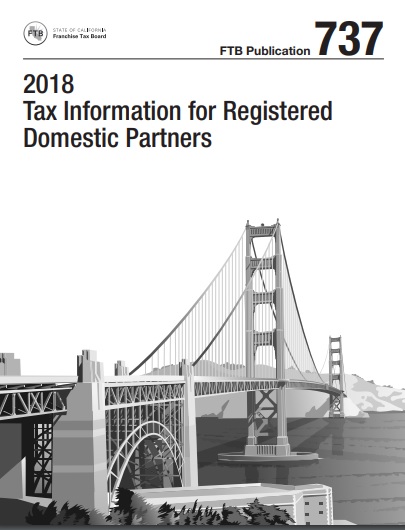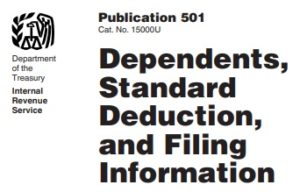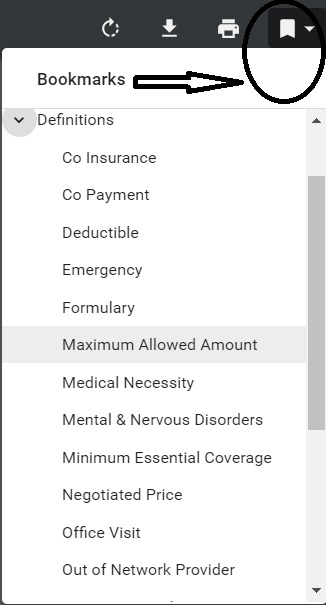Registered domestic partners health insurance California
Domestic Partners
- Health Insurance Dependent Definition –
- Also check your own EOC Evidence of Coverage
SB 30 changes this to two adults, doesn’t have to be same sex – Summary Keenan.com
Our Webpage on Covered CA requirement for Married to file jointly
California Insurance Equality Act.
(AB 2208 1/2005, Insurance Code §10121.7. (a) & §381.5)
(a) A policy of group health insurance that provides hospital, medical, or surgical expense benefits shall provide equal coverage to employers or guaranteed associations, as defined in Section 10700, [Small Group Employer AB 1672] for the registered domestic partner [Registry] of an employee, insured, or policyholder to the same extent, and subject to the same terms and conditions, as provided to a spouse of the employee, insured, or policyholder, and shall inform employers and guaranteed associations of this coverage. A policy shall not offer or provide coverage for a registered domestic partner that is not equal to the coverage provided to the spouse of an employee, insured, or policyholder, and shall not discriminate in coverage between spouses or domestic partners of a different sex and spouses or domestic partners of the same sex. The prohibitions and requirements imposed by this section are in addition to any other prohibitions and requirements imposed by law.
(b) If an employer or guaranteed association has purchased coverage for spouses and registered domestic partners pursuant to subdivision (a), a health insurer that provides hospital, medical, or surgical expense benefits for employees, insureds, or policyholders and their spouses shall enroll, upon application by the employer or group administrator, a registered domestic partner of the employee, insured, or policyholder in accordance with the terms and conditions of the group contract that apply generally to all spouses under the policy, including coordination of benefits.
(c) For purposes of this section, the term “domestic partner” shall have the same meaning as that term is used in Section 297 of the Family Code.
(d)
(1) A policy of group health insurance may require that the employee, insured, or policyholder verify the status of the domestic partnership by providing to the insurer a copy of a valid Declaration of Domestic Partnership filed with the Secretary of State pursuant to Section 298 of the Family Code or an equivalent document issued by a local agency of this state, another state, or a local agency of another state under which the partnership was created. The policy may also require that the employee, insured, or policyholder notify the insurer upon the termination of the domestic partnership.
(2) Notwithstanding paragraph (1), a policy may require the information described in that paragraph only if it also requests from the employee, insured, or policyholder whose spouse is provided coverage, verification of marital status and notification of dissolution of the marriage.
(e) Nothing in this section shall be construed to expand the requirements of Section 4980B of Title 26 of the United States Code, Section 1161, and following, of Title 29 of the United States Code, or Section 300bb-1, and following, of Title 42 of the United States Code, as added by the Consolidated Omnibus Budget Reconciliation Act of 1985 (Public Law 99-272), and as those provisions may be later amended. [Continuation Coverage]
(f) A group health insurance policy subject to this section that is issued, amended, delivered, or renewed in this state on or after January 2, 2005, shall be deemed to provide coverage for registered domestic partners that is equal to the coverage provided to a spouse of an employee, insured, or policyholder.
Insurance Code §381.5.
(a) Every policy …shall provide coverage for the Domestic Partner Registry of an insured or policyholder that is equal to, and subject to the same terms and conditions as, the coverage provided to a spouse of an insured or policyholder. …This subdivision applies to all forms of insurance regulated by this code.
On the other hand
Some Insurance Companies allow Heterosexuals, to be covered, if the Employer wants to provide for that option.
See question 7 g on the sample Employer Group Health Insurance Application – it may also be a law…
Here’s a sample certification form for hetrosexual domestic partnership arrangements.
California Tax Information Registered Domestic Partners
2021 #737
Federal IRS
- Q1. Can registered domestic partners file federal tax returns using a married filing jointly or married filing separately status?
- A1. No. Registered domestic partners may not file a federal return using a married filing separately or jointly filing status. Registered domestic partners are not married under state law. Therefore, these taxpayers are not married for federal tax purposes. IRS.gov *
- More Federal IRS FAQ's
- Our webpage on Registered Domestic Partners – Spousal Health Coverage?
Just Enter your census or securely send us an excel spreadsheet or a list of employees and get instant proposals for California
Specimen Individual Policy #EOC with Definitions
Employer Group Sample Policy
It's often so much easier and simpler to just read your Evidence of Coverage EOC-policy, then look all over for the codes, laws, regulations etc! Plus, EOC's are mandated to be written in PLAIN ENGLISH!
- Find your own Individual EOC Evidence of Coverage
- It' important to use YOUR EOC not just stuff in general!
- Obligation to READ your EOC
- Plain Meaning Rule - Plain Writing Act
- Our Webpage on Evidence of Coverage
- OOP Out of Pocket Maximum - Many definitions are explained there.
VIDEO Steve Explains how to read EOC
Hitler & Mental Health Disabilities T 4
Speak up! Do want you can to make sure this doesn't happen in the USA!
Translation for the poster below:
"This person suffering from hereditary defect costs the community $60,000 Reichsmark during his lifetime. Fellow German, that is your money, too. Translation & Image Courtesy of Psychology Fantom.com
Under the T 4 program, wikipedia.org T4 Certain German physicians were authorized to select patients "deemed incurably sick, after most critical medical examination" and then administer to them a "mercy death" (Gnadentod).[7] The T4 programme stemmed from the Nazi Party policy of "racial hygiene", a belief that the German people needed to be cleansed of racial enemies, which included anyone confined to a mental health facility and people with simple physical disabilities.[31] wikipedia.org T4
The annual cost for a bed in a CDCR-operated, inpatient psychiatric program is around $301,000 lao.ca.gov *
Did President Trump??? really say and mean this? Time.com
The Defense of Marriage Act
(P.L. 104-199), enacted 09/21/1996, requires that, in determining the meaning of any Act of Congress, any ruling, regulation, or any administrative interpretation, the word “marriage” shall mean only a legal union between one man and one woman as husband and wife. Under this law, the word “spouse” refers only to a person of the opposite sex who is a husband or a wife. Thus, for SEP [Medicare Special Enrollment] purposes, SSA cannot recognize the following individuals as a spouse under any circumstance:
- Domestic (or life) partner, age 65 or older and covered under a GHP, [Group Health Plan] and
- Domestic (or life) partner under age 65 entitled to Medicare based on disability and covered under a GHP.
For equitable relief policy for domestic (life) partners, see HI 00805.322.
We consider an individual to be a spouse for SEP purposes if he or she is a:
- spouse for Title II purposes (see RS 00202.001); or
- divorced spouse.
If a former spouse’s GHP or LGHP covers a divorced spouse, we consider the divorced spouse to be a “spouse” for purposes of these provisions even though he or she may not meet the title II definition. ssa.gov/
The U.S. Court has ruled against Proposition 8 which means that non-heterosexual couples may now marry in this state. This means that virtually all the same laws that apply to opposite gender marriages apply to same gender marriages.
The Internal Revenue Service has stated that it will deal with couples whose marriage was valid where celebrated but not in the state they move to as they would be treated in the state of marriage. For those who live in states where their marriage is legal, income tax laws require the filing of a married federal tax return. Learn More on Phil Hoskins Esq website
Taxation FAQ’s
Q25. If a registered domestic partner is self-employed and pays health insurance premiums
for both partners out of community property funds, are both partners allowed a deduction
under section 162(l) (deduction for self-employed health insurance)?
A25. If one of the registered domestic partners is a self-employed individual treated as an employee within the meaning of section 401(c)(1)(the employee partner) and the other partner is not (the non-employee partner), the employee partner may be allowed a deduction under section 162(l) for the cost of the employee partner’s health insurance paid out of community funds. If the non-employee partner is also covered by the health insurance, the portion of the cost attributable to the non-employee partner’s coverage is not deductible by either the employee partner or the non-employee partner under section 162(l).
CCLawyer
Lgbtbar.org
Consumer Resources
Q & A Equality CA Website,
CA 737 Publication
Tax Information for Registered Domestic Partners nclrights.org
National Center for Lesbian Rights lambda legal
Friendly Competitors Blog InsureMeKevin.com – on June 2015 Supreme Court Decisions
Wikipedia
Contra Costa Lawyer
Our webpage on dependent definition







https://www.motherjones.com/politics/2024/11/harris-trump-trans-rights-election-lgbtq/
https://www.thepinknews.com/2024/11/06/will-trump-take-away-lgbtq-rights-can-gay-marriage-be-reversed/
https://www.losangelesblade.com/2024/11/05/california-constitution-to-recognize-same-sex-and-interracial-marriages-as-fundamental-right/
I have been denied health cover by motion picture health and welfare, for my girlfriend, who i made my domestic partner this year, (registered with the state) because the law has been changed in California.
SB 30 – Plain Explanation Allowing heterosexual couples under age 62 to register as domestic partners.
They told me they will not put her on my insurance without a marriage license. I sent them my domestic partnership declaration that is filed with the state of California. Again they told my that they need a marriage license, because of the DOMA (defense of marriage act) federal law.
Does this federal law trump the California insurance act AB 2208.
Should I press the issue, are they allowed to refuse to put her on my policy, like they would if she was my spouse.
It appears your Plan is an ERISA Plan. Therefore, CA State Law does NOT apply. See below
You can get individual coverage for your girlfriend by clicking on the 1-2-3 easy steps for individual at the top of this page. Or the yellow button for Individuals, above.
When did she last have coverage?
We will need to review the Special Enrollment Reasons.
One thing I’ve learned answering these questions and having some people pay me for private tutoring on health insurance 101 is to get the EOC Evidence of Coverage, rather than try and interpret law. An EOC is generally mandated to be in plain English.
Here’s what look likes the EOC or Trust Agreement for the Motion Picture Industry Health Plan.
I find ERISA mentioned 5 times in the trust agreement, but don’t find a specific mention declaring the plan to be an ERISA Trust.
Oh, here’s the guy that paid us for tutoring and thought we were magic and would know everything, even though he never told us what plan he had. Here’s where we discussed if CA law applies to Self Funded Plans – ERISA Trusts
I don’t find a definition of dependent in the trust agreement.
Here’s what looks like the form to add a dependent.
Right here on the Motion Picture Website, they say they don’t do same sex domestic partners.
Can I add my same-sex domestic partner?
No. In 2013, the Board of Directors of the Motion Picture Industry Health Plan (“MPIHP”) adopted a policy of terminating Plan coverage for same sex/domestic partners in those states that permitted same sex marriage. On June 26, 2015, the United States Supreme Court legalized same-sex marriage in those remaining states where it was not previously permitted. Accordingly, MPIHP will cease coverage for unmarried same-sex domestic partners.
Our webpage on appeals
Does the non employee registered partner and not a spouse get the section 106 or 162 deduction and not have to pay income tax on the value of the premium?
Does the employer get the deduction?
Sorry, this question is beyond my pay grade. See my research above. Check with your own CPA or Legal Counsel. IMHO this question would be beyond the pay grade of VITA Volunteers income Tax Assistance too.